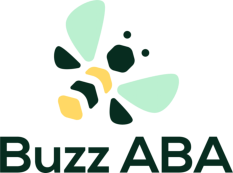Individualized Care In Concord, New Hampshire
Early Intervention ABA Therapy for Young Children:
Building Essential Skills
We understand the unique journey parents of children on the autism spectrum face, and we're here to make a real, measurable impact on their lives, not just focus on billable hours. Our neurodiversity-affirming approach values each individual's strengths, and we work closely with families to adapt as their needs evolve. We believe in personalized, family-oriented care, welcoming not just children but teenagers and adults as well. With a mindfulness approach to therapy, we prioritize assent and collaboration, never forcing compliance, ensuring that each step of the process honors your child's autonomy and growth.
Early intervention services in New Hampshire play a vital role in this process. Early ABA (Applied Behavior Analysis) intervention is essential because it takes advantage of a child’s critical developmental window. During the early years, a child’s brain is most receptive to learning new skills, adapting to new behaviors, and forming crucial connections. ABA therapy focuses on building communication, social, and functional skills, which can significantly improve a child’s ability to interact with their environment, reduce problematic behaviors, and enhance their overall quality of life.
Core Areas of Focus in Early ABA Intervention
The goals of early intervention in ABA therapy include:
Improving Communication Skills:
This may involve teaching verbal language, sign language, or alternative communication methods.
Enhancing Social Skills:
This can include teaching children how to interact with others, share, take turns, and understand social cues.
Reducing Challenging Behaviors:
ABA therapists work to identify the triggers for challenging behaviors and teach children more appropriate ways to communicate their needs and wants.
Increasing Independence:
This may involve teaching self-care skills, such as dressing, toileting, and feeding.
Promoting Cognitive Development:
This can include teaching pre-academic skills, such as counting, colors, and shapes.
What Parents Can Expect From Early Intervention
In addition to fostering developmental progress, early ABA intervention can prevent potential challenges from becoming deeply ingrained. The earlier a child starts therapy, the more likely they are to acquire adaptive behaviors and coping strategies that will help them succeed in various settings, from home to school and beyond. Parents also benefit from early intervention, gaining valuable insights and tools to better understand their child’s needs, reduce stress, and promote a more positive family dynamic. By addressing developmental delays early on, ABA therapy maximizes a child’s potential for long-term success.
Why Choose Buzz ABA?
Neurodiversity-Affirming:
We focus on each individual's strengths, promoting confidence and growth.
Personalized Care:
Our ABA programs are tailored to your child's unique needs, ensuring the best possible outcomes.
Family-Focused:
We work closely with families to create plans that fit into their daily lives.
Mindfulness-Based Approach:
We respect your child's autonomy, focusing on consent rather than forced compliance.
Experienced Team:
Our highly trained therapists are dedicated to providing compassionate, evidence-based care.
FREQUENTLY ASKED QUESTIONS (FAQs)
This section answers common questions about early ABA intervention and what families can expect when starting therapy.
What is the ideal age to begin ABA therapy?
Early ABA therapy typically starts between ages 2 and 5, during a child’s most flexible developmental phase. This timing increases the effectiveness of skill-building and behavior shaping.
Can ABA therapy help with nonverbal children?
Yes, ABA techniques can be adapted for nonverbal learners using tools like sign language, communication devices, and picture systems to improve expression and understanding.
How often should ABA sessions be scheduled?
The frequency varies depending on the child’s needs, but many programs recommend 10 to 40 hours per week. A Board-Certified Behavior Analyst (BCBA) can guide the appropriate schedule.
Are therapy goals created for each child?
Every ABA plan is customized to fit the child’s individual needs, with goals developed through assessments and family input to ensure targeted progress.
Does ABA therapy take place only in clinics?
No, ABA can occur in various settings such as homes, schools, or community environments to increase the relevance and generalization of skills.
How is progress measured in ABA therapy?
Therapists track specific behaviors and skill milestones over time, using data-driven methods to adjust teaching strategies and ensure continuous improvement.
What role do parents play in ABA therapy?
Parental involvement is key, with regular communication, training, and feedback loops that help carry over learning into daily life.
Start your child's early intervention journey today. Reach out to Buzz ABA at 603-802-7103 for your free consultation.
